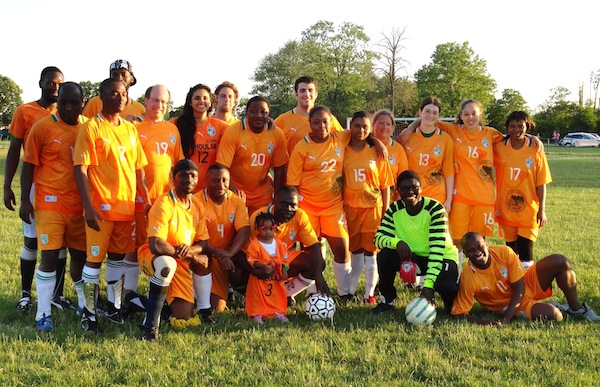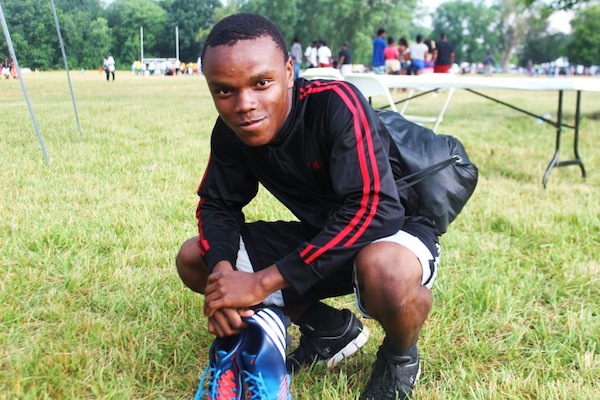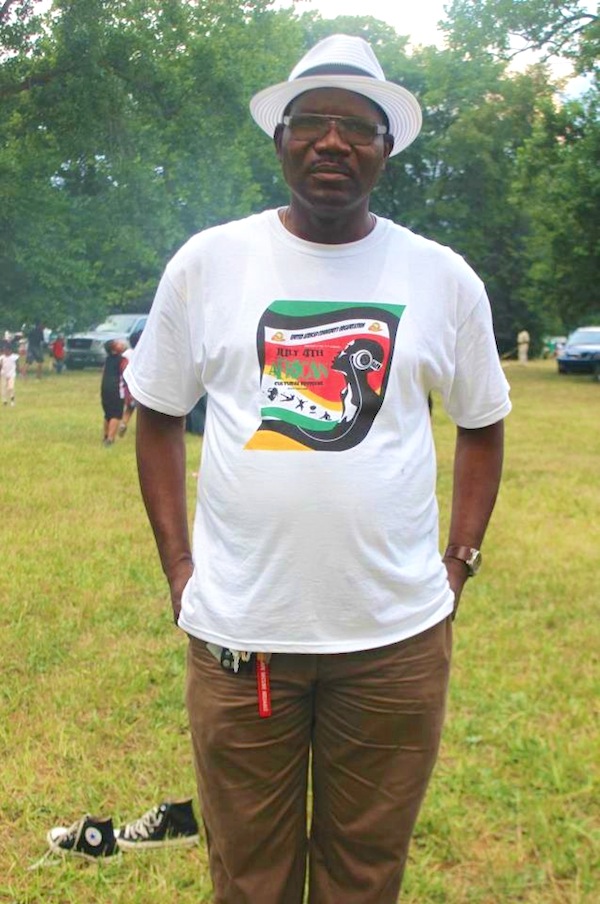Global Detroit: Soccer unifying force for African immigrants
Each year on Independence Day, Detroit’s African communities split up by country to face off in a series of games which last the entire nine hours of the picnic. But it's not about winning in the end, writes Ajooni Sethi, it's about building community.
Seven months ago, Global Detroit highlighted the positive role of diversity in Detroit’s soccer scene in Model D, specifically the Detroit City Futbol League’s 2011 COPA winner — Brightmoor, a team made up of Jamaican, Congolese, Nigerian, African-American and white players playing for an often overlooked neighborhood.
In the past two years, several articles have covered the amazing ability of the DCFL and the more recent Detroit City Football Club (DCFC) to use semi-professional soccer to bring together and build relationships among community members from various Detroit neighborhoods.
A few weeks ago, Global Detroit discovered another, though perhaps lesser-told, story of how soccer brings international flavor to the Detroit region.
While many of us grilled burgers and franks at our respective BBQs this past July 4, over 10,000 Detroiters celebrated Independence Day by eating foods like cassava and aloko at Eliza Howell Park in northwest Detroit.
The tradition, now called the Annual All-African July 4 picnic, started informally almost 20 years ago when Dr. Salewa Ola (pictured bottom left) and his friends, also African immigrants, realized they had no plans for their Independence Day vacation.
“Most of us were far away from home and basically we had nowhere to go…and since no one goes to work and no one goes to school, we started doing a picnic,” says Dr. Ola, Executive Director and Founder of the United African Communities Organization (UACO). UACO, the umbrella organization for all African Associations in Michigan, represents all African immigrants residing in the Metro Detroit region.
Over the years, the picnic has continued to grow and includes more African countries each year, this year’s crowd representing twenty different African nations. Each nation hosts their own tent at the picnic, featuring its unique culture and cuisine. Now an African and Detroit institution, Dr. Ola says the festival is the largest African gathering in North America, complete with various activities including a Parade of Nations, a main stage with live music, fashion shows, stalls selling African food, clothing, and crafts, and booths providing free health screenings.
However, Dr. Ola says that it isn’t the music or even the food that attracts the festival’s impressive crowd.
It’s the soccer.
“We identify with soccer as one unifying force,” says Dr. Stephen Uche, the festival’s head referee. “It is a common language among all Africans.” Evidence of this can be found on the sidelines where children, just old enough to walk, already kick soccer balls and sport miniature soccer jerseys of their native countries.
Each year, Detroit’s African communities split up by country to face off in a series of games which last the entire nine hours of the picnic, all in hopes of winning the trophy and the title.
Dr. Ola stresses, though, that the impact of soccer transcends basic winning and losing, “Above all, the spirit, which is not only to win, but to participate.” Dr. Ola says the soccer tournament has created valuable partnerships in the African community, bringing together people from different backgrounds that otherwise would never have met. He himself attributes many of his friendships with those from other countries to playing soccer.
Sean Mann, the main mind behind DCFL and DCFC, draws the same conclusion from his experiences with Detroit soccer. “I walk into a bar now and there’s people I will walk by and say hi to and chat with that I would have walked by before,” Mann says.
There is no question that soccer is fostering communication within leagues all over Detroit, building networks across neighborhoods in the city.
But what about communication between and among these different soccer communities? Dr. Uche expresses that UACO envisions the Fourth of July All-African Festival expanding its audience and becoming an opportunity to introduce non-Africans to African culture. He says that the festival allows people who otherwise could never visit Africa to travel to 20 different African countries in just one day.
When asked if soccer carries the potential to integrate African-born and non-African-born Detroiters, Dr. Uche answers quite simply, “Yes. Yes, yes, yes.”
One team currently exploring this potential is DCFL’s Berry Subdivision, a team coached by and largely made up of players from the Ivory Coast. Berry Sub Coach Guy Zohou says DCFL’s format, including the weekly rotating after-parties and requirement of community service hours, has helped him build strong relationships with Detroiters from outside his community.
Yet, Dr. Uche believes more opportunities to foster interaction between communities such as DCFL and UACO exist, specifically the ability for Africans to share their culture’s deep running love of soccer with Americans who are new to the sport.
“Many American schools are beginning to play soccer,” Dr. Uche says, “We can have more African people who coach soccer or play soccer back home get involved in the school system.”
Dr. Uche suspects Africans would take quickly to the idea of sharing soccer with Americans. Paired with the recent successes of DCFC and DCFL, which have already created a fan base amongst youth, such measures to build capacity for soccer in Detroit’s future could be a perfect win-win, establishing bonds between African and non-African Detroiters while also feeding Detroit’s new appetite for the universal sport of soccer.
“In Africa,” says Dr. Ola, “They say it takes a village to raise a child. And the same thing is true in sport. We have to do it together.”
Global Detroit contributes an article to Model D each month. Ajooni Sethi currently works as the Communications Intern for Global Detroit and the official cheerleader for Barry Subdivision. Interested in how diversity is building Detroit’s economy? Tweet Ajooni and Global Detroit @GlobalDET.








